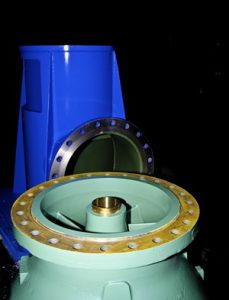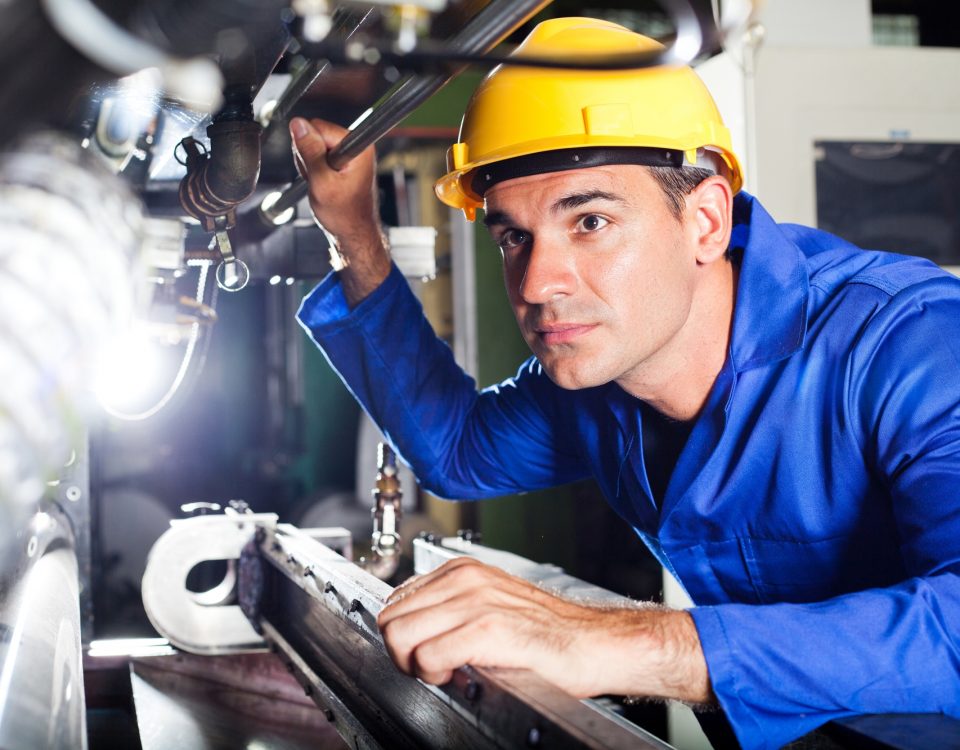
HDS Expands to Meet Growing Needs of Customers
September 18, 2016Pump Life: After the Rebuild
September 21, 2016Pros and Cons of Coating Your Rotating Equipment
 To coat or not to coat? Rotating equipment owners know protective coatings safeguard against fouling and corrosion, but are they absolutely necessary for every application? Which conditions and/or process media should be considered for coatings? Will coating impact the performance of the equipment positively or negatively? Which coating should be used for which process media? Will coating critical components reduce the need for rotating equipment repairs and downtime? These are the questions rotating equipment owners ask when deciding whether to invest in this practice. The main reason owners look at using coatings is to prolong service life, decrease operation and maintenance costs, and increase equipment efficiency.
To coat or not to coat? Rotating equipment owners know protective coatings safeguard against fouling and corrosion, but are they absolutely necessary for every application? Which conditions and/or process media should be considered for coatings? Will coating impact the performance of the equipment positively or negatively? Which coating should be used for which process media? Will coating critical components reduce the need for rotating equipment repairs and downtime? These are the questions rotating equipment owners ask when deciding whether to invest in this practice. The main reason owners look at using coatings is to prolong service life, decrease operation and maintenance costs, and increase equipment efficiency.
The Advantages of Coatings
Equipment reliability and longevity are the two biggest concerns for industrial facilities and undeniably so, as capital equipment is your largest investment. Depending on the size of the equipment and its usage, the cost of the coating and labor can be paid back in less than a year by an increase in efficiency of just a mere two percent. Other secondary benefits of using coatings are decreased electricity usage and increased performance. Rotating equipment is subjected to harsh conditions with long operational times and abrasive or corrosive process materials. Coatings help protect against the damage caused by wear-prone applications. They have been designed to be wear resistant, reduce friction, protect against caustic/acidic materials and cleaning agents, and increase line efficiencies. Coatings come in two categories – organic and inorganic. Organic coatings range from thermoset and thermoplastic polymers to elastomers. They are the most commonly used and cost effective mode of protection. Inorganic coatings are non-carbon based compounds such as glass, metals, silicones, and ceramics. Choosing one type over the other involves understanding the ease of coating application and whether the service condition is mechanical, thermal, or chemical. Inorganic coatings perform highly in abrasive and corrosive applications and last long, but tend to be more expensive than organic coatings. Check with your equipment manufacturer for coating recommendations.
The Disadvantages of Coatings
Sometimes coatings are not the best solution. Coatings work well for equipment that is stationary and that will not experience high volumes of turbulence or erosion from abrasive particles. Coatings are great short-term solutions in your anti-corrosion strategy. Once a coating has been applied, it immediately begins a degradation process that will require touch-ups, maintenance, or even a complete reapplication. Coatings can also inhibit pump performance by causing obstacles or closing off passes and ports. When these applications begin to throttle your equipment, it moves the machinery farther away from its original design point, thus reducing efficiency and service life. In high velocity services, coatings will be quickly removed and will be less cost-effective in the long run because of constant reapplications.
An Alternative to Coatings
If organic and inorganic coatings are not right for your rotating equipment’s service condition, then it may be time to check out structural composite components. There are numerous advantages to composites. First and foremost, they are corrosion and chemical resistant. With metallic equipment that has been coated, process media is able to penetrate the coating, getting underneath it, and corroding the metal components. Composites are a solid piece, so coating is not required, thus eliminating corrosion issues. They are also incredibly strong and lightweight. Lightweight materials are easier to move and equate to significant energy savings. Their high strength makes them durable and resistant to pitting and damage. Composites also have excellent elasticity. When metal components are under stress, they will dent and yield. Composites will spring back into place after the stressor is removed. Because they are non-metallic, composites are also non-conductive, making them safer in high-voltage operations.
Composites are an excellent choice for rotating equipment owners, but it requires investing in new parts and equipment. There are advantages and disadvantages to using coatings on your rotating equipment. You will have to look at several factors to determine whether using a coating is your best solution or whether to invest in structural composite components and equipment instead. Though coatings are a more short-term solution, they are a more cost-effective investment (up front) and easy to apply. If you are looking for a more permanent, long-term solution, check out structural composites. Either way, you will see immediate benefits of increased efficiency, reduced energy usage, prolonged service life, and a reduction in the need for rotating equipment repair.
Anticorrosion Coatings Pump Up Efficiency. Industrial Equipment News.

